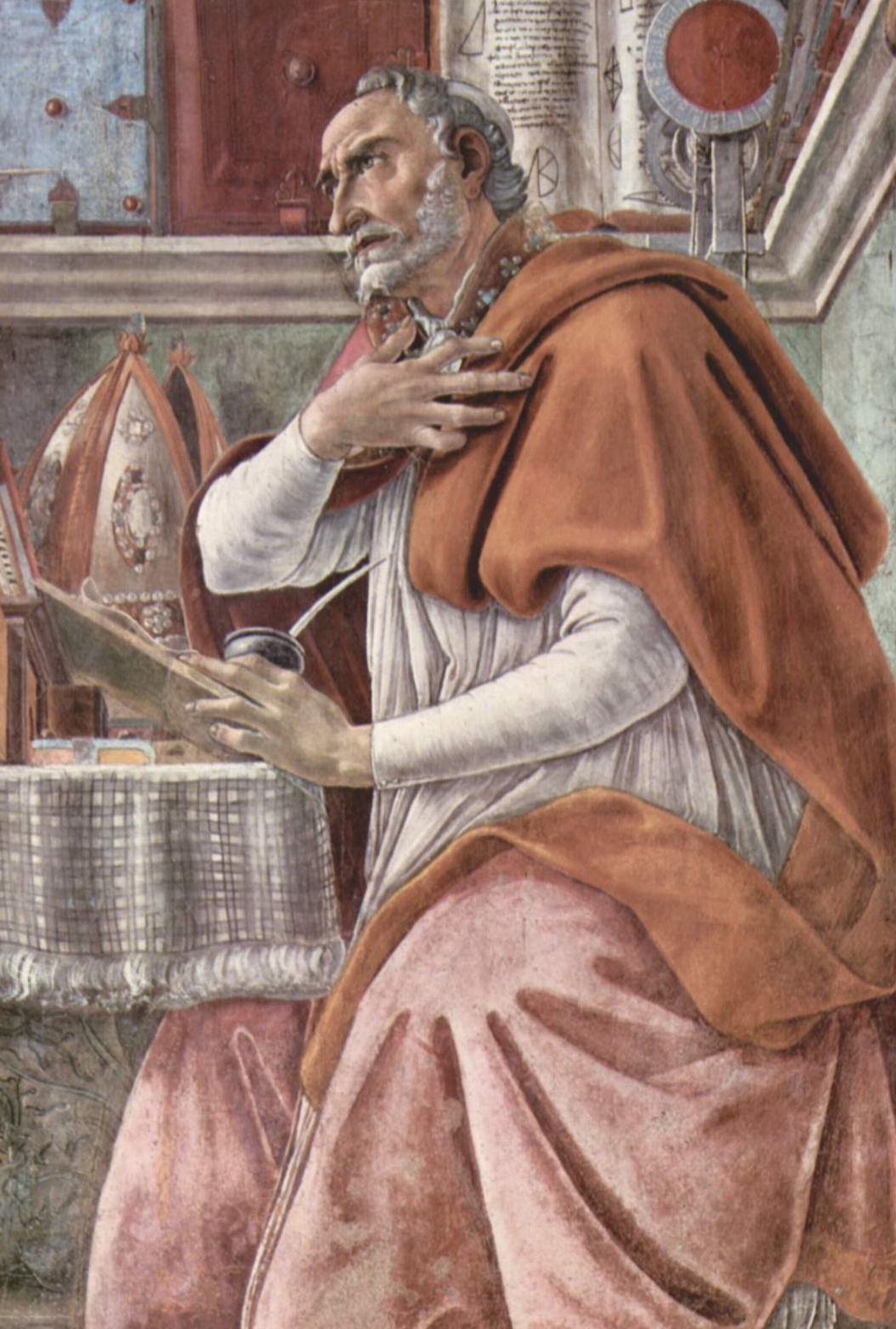
Biography
Born in 354 CE in the North African city of Tagaste to a Christian mother and pagan father, Augustine began his career as a pagan teacher of rhetoric in, among other places, Carthage. In search of better students, Augustine traveled to Rome in 383, assuming considerable personal risk in doing so, but was disappointed to discover his newfound students lacking the virtue he thought the necessary prerequisite for a proper education. Failing to acquire satisfactory students, Augustine moved once again, this time to Milan where he accepted a position as a professor of rhetoric.
It was in Milan that Augustine adopted the study of Neoplatonism in earnest, though he had shown a fondness for classical philosophy, particularly the works of Virgil and Cicero, from an early age. In Neoplatonism the still-young Augustine thought, with great confidence and enthusiasm, that he had found an academic school capable of uniting the teachings of Christianity with those of Greek and Roman philosophy. Shortly thereafter Augustine converted to Christianity and, returning to North Africa, accepted the position of bishop in Hippo in 396, one that he would retain for the remainder of his life. It was arguably his encounter with Neoplatonism that caused Augustine to recognize the teachings of the Church as a source of intellectual insight not unlike that of classical philosophy. An autobiographical account of his religious conversion is the subject of Augustine’s Confessions, which numbers among the most famous and influential of his works.
Upon rising to the position of bishop, Augustine increasingly immersed himself in the daily routine of monastic life and became entangled with internal Scholastic controversies facing the Church, particularly those involving the Donatists and Pelagians. Because of his considerable intellect and rhetorical skill, Augustine grew to be a particularly skillful and persuasive defender of Christianity against critics from multiple directions. At the same time, Augustine appears to have grown increasingly skeptical of his youthful opinion that Christianity and classical philosophy might be readily reconciled by way of Neoplatonism. Though Augustine’s work De Civitate Dei (The City of God) contains considerable praise for Platonic philosophy and its intellectual inheritors, more apparent within the work are the major differences between the Platonic tradition and many of the teachings of the Church, with Augustine, not surprisingly, lending his own support to the latter. In his personal life, Augustine is described as living a life of tireless work and rigorous denial of earthly pleasures.
Augustine devoted his final days to prayer and repentance as he battled illness and watched his home, Hippo, besieged by Germanic invaders. Shortly after his death in 430 the city was burnt to the ground by its attackers, who, nonetheless, left Augustine’s library unharmed. He was subsequently canonized and was named a Doctor of the Church in 1298. He continues to serve as the patron saint of printers, brewers, and theologians.
For more detailed biographical information, see:
Gareth Matthews, Augustine, Malden: 2005.
James O’Donnell, Augustine: A New Biography, New York: 2005.